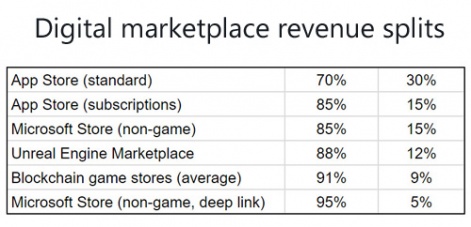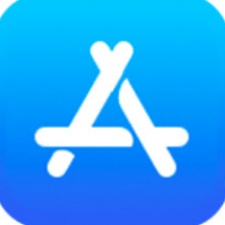This article was originally published on July 17th 2018. In light of the news of the new Epic Games store offering an 88/12 royalty split (it's expected to start selling Android games in 2019) and now Discord promising a 90/10 share in favour of developers, we've republished this piece on why time may be up for the 70/30 App Store split.
At a time when most mobile developers couldn’t get their games published, and even if they could, their revenue was eaten by operators and publishers, the promise of a 70:30 revenue share from a store anyone could distribute through was a pipe dream.
10 years on, however, it’s no surprise a mobile games sector that’s generating over $50 billion annually is now less certain Apple and Google’s $20 billion take is an appropriate share of the rewards given their risk profile.
Change but not for games
Of course, over the years there have been some changes. Both app stores are now more generous to app developers who monetise through subscriptions, but this 85:15 split isn’t something most games developers can access.
Games, even games-as-a-service, are just too lumpy in terms of their new content delivery and retailing dynamics than can be easily encapsulated in a simple Netflix-style fixed monthly charge.
Adding further insult, the new fee structure for the Microsoft Store offers developers up to 95 per cent of revenue, but this is only for “consumer applications (not including games)”.
The mobile game sector is now less certain Apple and Google’s $20 billion take is an appropriate share of the rewards given their risk profile.
Despite this, however, Microsoft’s move is significant as it shifts its standard split to 85:15, with the 95 per cent share offered for developers who generate their own sales by deep linking to the Microsoft Store rather than generating sales through the store via search etcetera.
This sort of approach is welcome because it highlights the ways in which app stores are used and the value they add (or don’t) to deserve their revenue share.
Broadly put, the majority of users use the store itself for discovery, hence the important of regular promotions such as weekly features. Yet, especially in the case of games, developers who spend time cultivating their own communities and driving their own download traffic, should surely be rewarded for their efforts beyond what can be earned from general affiliate links.
Of course, in the case of free-to-play games, there’s no upfront revenue to split, but given how much effort Apple spends highlighting paid games it’s somewhat surprising it hasn’t taken advantage of such a move, which would generate headlines as well as materially improving the lot of small indies who are currently struggling across all games platforms.
Change is coming
And aside from this particular opportunity, the 70:30 split seems increasingly monolithic and anarcronistic.
As Epic’s announcement of its new 88:12 split for the Unreal Engine Marketplace demonstrates, the cost of generating considerable goodwill is marginal, even assuming it’s in some way underpinned by Fortnite’s success.

Equally, without overstating my current obsession with blockchain gaming, most prospective app stores and game distribution channels in this sector are highlighting their ‘better than 70:30’ splits to attract developers.
Indeed, many are offering 100 per cent of revenues to developers in the hope of generating their cut from resales and item trading, and that’s before you get into smart contracts, which offer the potential for incredibly sophisticated royalty share options; something Microsoft is already using for Xbox games.
Certainly unlikely but in this context it’s not unthinkable we’ll see a wider unbundling of app store services supported by blockchain technology.
This could see much more flexible revenue shares depending of whether a user came directly through the store or via a series of affiliate links, not to mention their status within, say, an app store’s VIP program, and what payment system they’re using.
Blue sky for the present, but whichever way you cut it, the days of 70:30 seem numbered. If nothing else, in the current environment, no platform holder can seriously justify taking 30 per cent no matter how large their reach.
The only uncertainty is who will make the first move and who gets trampled in the resulting crush.






















